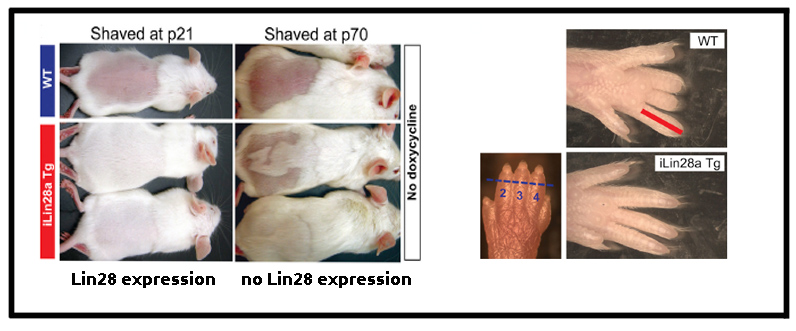Enhanced adult tissue repair by Lin28 reprogramming
In the animal kingdom, barring a few special species, regenerative capacity declines with age. The exact mechanism of enhanced tissue repair in juveniles and the cause for its decline is under debate. However, a recent study by Shyh-Chang, et al., shows that expressing a critically important embryogenesis specific RNA-binding protein, Lin28a, in an adult mouse stimulates cellular metabolic pathways, and enhanced regeneration of: hair, cartilage, bone, and mesenchyme after induced injuries.
Using an inducible Lin28a mouse model, they reactivated Lin28a expression post injury. Lin28a expression, and not its repression of other effectors, was responsible for mRNA translation of metabolic enzymes and the increase of cellular glycolysis and oxidative phosphorylation (OxPhos). This report reveals a novel application of Lin28a for in vivo tissue repair through ehancement of cellular metabolism.



